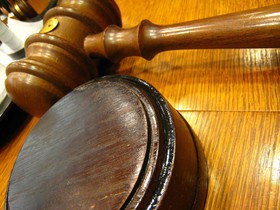Non-profits licensed as charitable organizations by Michigan regulators received about $4.9 million in net profit from charitable poker events held in 2022, a sign that such organizations had made a comeback from the pandemic.
According to the Michigan Gaming Control Board (MGCB), qualified charitable organizations in the Wolverine State held 1,394 licensed fundraisers last year, with approximately $67.9 million in chip sales. That mark fell just short of the $72.4 million in chips sold in 2019, but the number of licensed events increased 137% year-over-year between 2021 and 2022.
MGCB Executive Director Henry Williams said the regulator is encouraging charitable organizations to consider hosting Millionaire Parties as a vehicle to raise funds to support their philanthropic causes.
“Our agency offers resources for charities, including a helpful video, so leaders of organizations may learn more about how to qualify and apply for licenses,” Williams said Wednesday. “Our staff also will answer questions and provide information to guide charity leaders throughout the application and licensing process, visit live events, and give charities feedback on their events.”
Michigan gaming law — specifically, the Bingo Act, aka the Traxler-McCauley-Law-Bowman Bingo Act, a statute from 1972 that was last amended in 2019 — authorizes charitable gaming events “where wagers are placed on games of chance customarily associated with a gambling casino,” the MGCB said.
The regulator added that in Michigan, online poker is usually the most popular game at such charitable events, with players using either imitation money or chips.
A section of MGCB’s website is devoted to Millionaire Parties and provides information, including eligibility requirements and applications, for non-profits to qualify as charitable organizations with the regulator. The MGCB added that various types of non-profits are often exempt from section 501© of the Internal Revenue Code.
The regulator lists eight types of non-profits that may qualify as a charitable organizations:
- Educational Organizations — including public schools, non-profit charter schools, and school districts
- Fraternal Organizations — which includes a branch, lodge, or chapter of a national or state organization
- Religious Organizations — MGCB defines these as including a “church [or] body of communicants”
- Veterans Organizations — similar to fraternal organizations, includes those chartered by Congress
- Local Civic Organizations — for groups recognized by resolution by local government entities
- Senior Citizens Organizations — defined as an organization with at least 15 members aged 60 or older
- Service Organizations — similar to requirements for fraternal and veterans groups
- Local Government — meaning a township, city, or village council or board
The MGCB said that once an organization qualifies, it may apply for up to four Millionaire Party licenses within a calendar year. According to the regulator, it may authorize each permit for up to four consecutive days, with a license fee of $50 per day of gaming.
Qualified charitable organizations can make license payments electronically through the Millionaire Party portal on MGCB’s website or through a check sent directly to the regulator.
“Two bona fide members of the charity must be present at an event, and the charity may hire an authorized supplier to provide equipment and dealers to help conduct it,” MGCB said, “A charity may host an event at its own or a leased location.”
The regulator added that chip sales are limited to $20,000 per day. “However, if the organization uses its own location, equipment, and dealers, it may calculate its daily chip limit by dividing $80,000 by the number of event days,” MGCB said.
Qualified charitable organizations must manage the Millionaire Party and keep financial and game records, which must be submitted to the MGCB by the 10th day of the month following the event’s last day.




